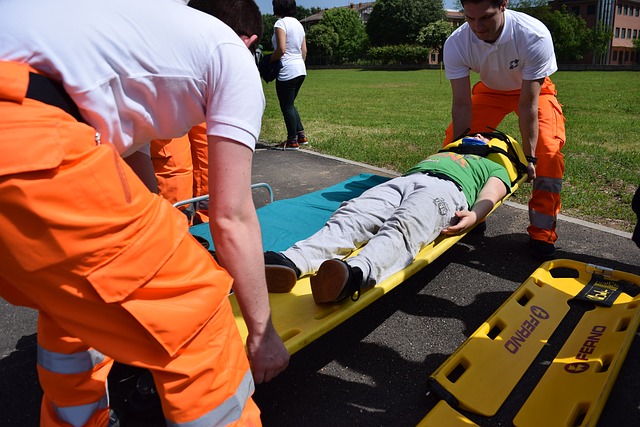Emergency preparedness is like flossing—it’s something all event planners know they need to do, but it often ends up being an afterthought. Unfortunately, overlooking this crucial step can have serious consequences if something goes wrong. The last thing you want is for your event to be remembered as a disaster.
This guide will provide practical tips and considerations for event planners to prepare for emergencies effectively. While you can’t plan for every scenario, having a response plan for common situations ensures a safer event for attendees and peace of mind for organizers.
Why Emergency Preparedness Matters
Emergencies don’t always involve catastrophic incidents like loss of life. As Dave Leonard, CEO of Mosaic Medical, highlights, preparedness can include planning for scenarios like lost children, overcrowding, or simply deterring potential issues with visible security measures.
Emergency planning doesn’t need to feel overwhelming—it just needs to be intentional. By breaking down potential risks, creating a plan, and involving the right people, you can mitigate potential chaos and create a safe, memorable event.
What Is Your Goal?
Questions to Define Your Goals
The first step in emergency preparedness is identifying your goals during an emergency. Consider the following questions:
- Is discretion a top priority?
- Should the event continue in the face of disruption?
- How will overcrowding or unexpected incidents be managed?
- How do you want your event to be perceived in the community? Is it a positive contributor or a drain on local resources?
- Do you have a plan for communicating with attendees and the media if something goes wrong?
Managing Public Perception
Having clear objectives will shape your emergency response plan and communication strategy. For instance, social media can quickly amplify bad news. Preparing clear, concise messages that show the situation is under control is vital to managing public perception.
“The most important first step in emergency preparedness is to determine what your goals are in the event of an emergency.”
When to Start Emergency Preparedness Planning
Early Planning Is Crucial
The best time to start planning for emergencies is at the very beginning of your event preparation. Early discussions with emergency professionals can influence critical decisions, such as:
- Event layout: Designing entrances and exits for efficient crowd control and quick evacuation.
- On-site medical staff: Reducing response times for medical emergencies.
- Security presence: Deter potential issues before they arise.
Avoid Last-Minute Panic
Many planners wait until the final week to consult emergency services, which is often too late to implement key changes. Therefore, starting early ensures you can address these concerns effectively and avoid last-minute panic.
“The very beginning of planning an event is the best time to initiate discussion with emergency professionals.”
Engage Experts to Develop a Response Plan
Benefits of Professional Expertise
Emergency preparedness professionals can help you identify risks and create response plans tailored to your event. They group potential emergencies by severity and develop clear, actionable strategies for handling each scenario.
Focus on What You Do Best
Even seasoned event planners can benefit from expert advice. After all, letting professionals handle the heavy lifting allows you to focus on the other 99% of event details.
“Enlisting an outside service can help identify your goals and prepare for common scenarios.”
Training and Communication: Empower Your Team
Equip Your Team for Success
Your team is your first line of defense in an emergency. Equip them with the knowledge they need to act quickly and effectively:
- Host Pre-Event Training: Teach staff and volunteers how to assess risks, who to inform, and how to communicate clearly in a crisis.
- Assign Clear Roles: Define responsibilities for specific scenarios to avoid confusion during an emergency.
- Use Technology Tools: Platforms like ClearEvent’s messaging feature ensure all team members stay informed and aligned.
Why Training Matters
Well-trained staff will feel empowered to respond confidently, which reduces the likelihood of chaos and ensures attendee safety.
Practical Emergency Preparedness Tips
Actionable Steps to Enhance Safety
Here are actionable tips to improve your event’s emergency preparedness:
- Create an Emergency Kit: Include essentials like first aid supplies, flashlights, batteries, and portable phone chargers.
- Develop an Evacuation Plan: Map out exits, identify safe zones, and rehearse evacuation procedures with your team.
- Set Up Communication Channels: Use SMS alerts or PA systems to quickly inform attendees and staff.
- Collaborate with Local Authorities: Build relationships with police, fire, and medical services to streamline coordination during emergencies.
- Plan for Common Scenarios: Include strategies for medical emergencies, lost children, severe weather, and security threats.
Additional Resources for Emergency Preparedness
Helpful Links
To learn more, explore these helpful resources:
- Ontario Association of Emergency Managers
- Health and Safety Executive: Event Safety
- Yale University: Special Event Emergency Planning
Final Thoughts
Emergency preparedness doesn’t have to be overwhelming. By starting early, setting clear goals, and leveraging expert advice, you can create a safer, more enjoyable event for everyone involved. Preparedness isn’t just a responsibility—it’s the key to protecting your attendees and your event’s reputation.
